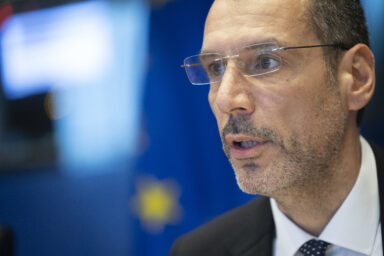Over the past decade, the EU has taken bold steps to regulate the digital sphere. The Digital Services Act and the Digital Markets Act are landmark laws aimed at increasing accountability across platforms, targeting how they moderate content, or display advertising. Monetization programs that directly fund publishers and creators, however, have so far largely escaped regulatory oversight.
Much regulatory attention has focused on how platforms generate revenue, particularly through advertising. Less discussed is the flip side of that economy, how platforms pay content creators. Over time, platforms have evolved beyond simple ad-sharing models to operate internal monetization programs that directly fund publishers and creators.
Meta added more than two million accounts to its monetisation programs over the last two months. — Victoire Rio, Executive Director of What to Fix
The distinction between advertising and monetisation is more than semantic. As Victoire Rio, Executive Director of What to Fix, explains, “Advertising systems focus on the business relationship between platforms and advertisers. Monetization systems, on the other hand, are what guides the relationship between platforms and publishers.
The rapid growth of these businesses is evident as Meta added more than two million accounts to its monetization programs in just two months.
From advertising to content monetization
Originally, content monetization followed a straightforward model. YouTube’s Partner Program became an industry standard: creators opted in, ads ran on their content, and creators received a share of the ad revenue. Creators controlled their own ad inventory, and payouts were directly linked to audience engagement.
However, that model has changed. “Starting in 2020, YouTube adjusted its terms of services and granted itself a right to monetize,” Ms Rio notes. “It can now place ads on any channel or video, regardless of the publisher’s consent.”. With this shift, she adds, platforms are saying: we are not an ad exchange anymore. We run an ad business, selling our own ad placements, and a separate content business, which pays royalties to creators”.
You might be interested
Facebook has adopted a similar approach with its Content Monetization Beta, which merges formats like Reels, Stories, and photo posts into a unified payout system. Although creators earn through this program, Facebook maintains a separate advertising infrastructure, Meta Ads.
Where EU law fits monetization
Monetization activities on platforms such as Meta’s Facebook or Instagram, designated as Very Large Online Platforms (VLOPs), Very Large Online Search Engines (VLOSEs), or gatekeepers, fall within the scope of both the Digital Services Act (DSA) and the Digital Markets Act (DMA). However, these laws address monetisation differently.
Under the DMA, content monetization is relevant in how gatekeepers are required to offer business users “fair, reasonable and non-discriminatory” conditions of access. The DSA explicitly treats demonetization, the suspension or removal of a creator’s ability to earn from their content, as a form of content moderation.
Monetization is also referenced in the EU Code of Practice on Disinformation, which focuses primarily on advertising revenue. This voluntary code commits platforms to prevent funding disinformation by avoiding ad placements alongside harmful or false content and ensuring that advertising systems do not reward such actors. However, it does not clearly address the monetization of content creators through other revenue streams besides ads.
The DSA requires them to assess and mitigate the risks linked to the design, functioning, and use of their services. That should cover monetization services too. — Victoire Rio, Executive Director of What to Fix
Ms Rio believes these measures are insufficient “The DMA is meant to make the digital market fairer—including for publishers. But when it comes to social media, platforms are basically saying that their relationship to publishers is no longer part of their online advertising service. Content monetization isn’t a core platform service, so this is a brilliant way to sidestep enforcement,” she said.
Inside the data black box
Monitoring platform monetization is also more challenging than tracking advertising transparency. EU regulations require large platforms to maintain public ad libraries and publish reports on ad placements, yet there is no equivalent transparency for creator payouts.
“We have ad libraries. But we don’t have a publisher equivalent. We have no idea who platforms’ pay royalties to. It’s a complete black box,” says Victoire Rio, Executive Director of What to Fix.
Meta is the only company sharing some publisher data, but only for accounts currently active in its monetization programs. Observers must download daily program files and back up the data, a complex and limited process.
Ms Rio’s team at What to Fix conducts a daily collection of Meta’s Partner Publisher List to shed light on these opaque systems. The findings raise significant concerns: “We’ve found politicians, disinformation actors, political pages, and even sanctioned entities registered to receive payouts,” Ms Rio reveals. “If then can’t stop a sanctioned actor from joining their monetization program, just imagine what else is getting through.”
All of a sudden, no money
EU regulation approaches monetization partly as a tool to hold bad actors accountable by cutting off their funding. Under the DSA, demonetization, the suspension of monetization privileges, is considered a form of content moderation. As such, platforms must provide creators with clear explanations when demonetizing them and allow for appeals.
However, Victoire Rio warns that approaching the issue at the content level, using automation, can create unintended consequences. “Many influencers start by making a bit of money and then go full-time”, she notes. “If they get demonetized suddenly, they’re desperate. So they’re more likely to accept deals from unknown or political actors,” Ms Rio says.
Looking ahead: Digital Fairness Act
On 17 July 2025, the European Commission launched a public consultation to prepare the Digital Fairness Act (DFA). The consultation seeks input from citizens, civil society, businesses, and public authorities on harmful online practices and possible regulatory solutions to improve fairness in digital markets.
However, it is not certain whether the DFA will address monetisation transparency or payout systems. An impact assessment is expected before any formal proposal. Whether the DFA will close this transparency gap remains an open and closely watched question.










